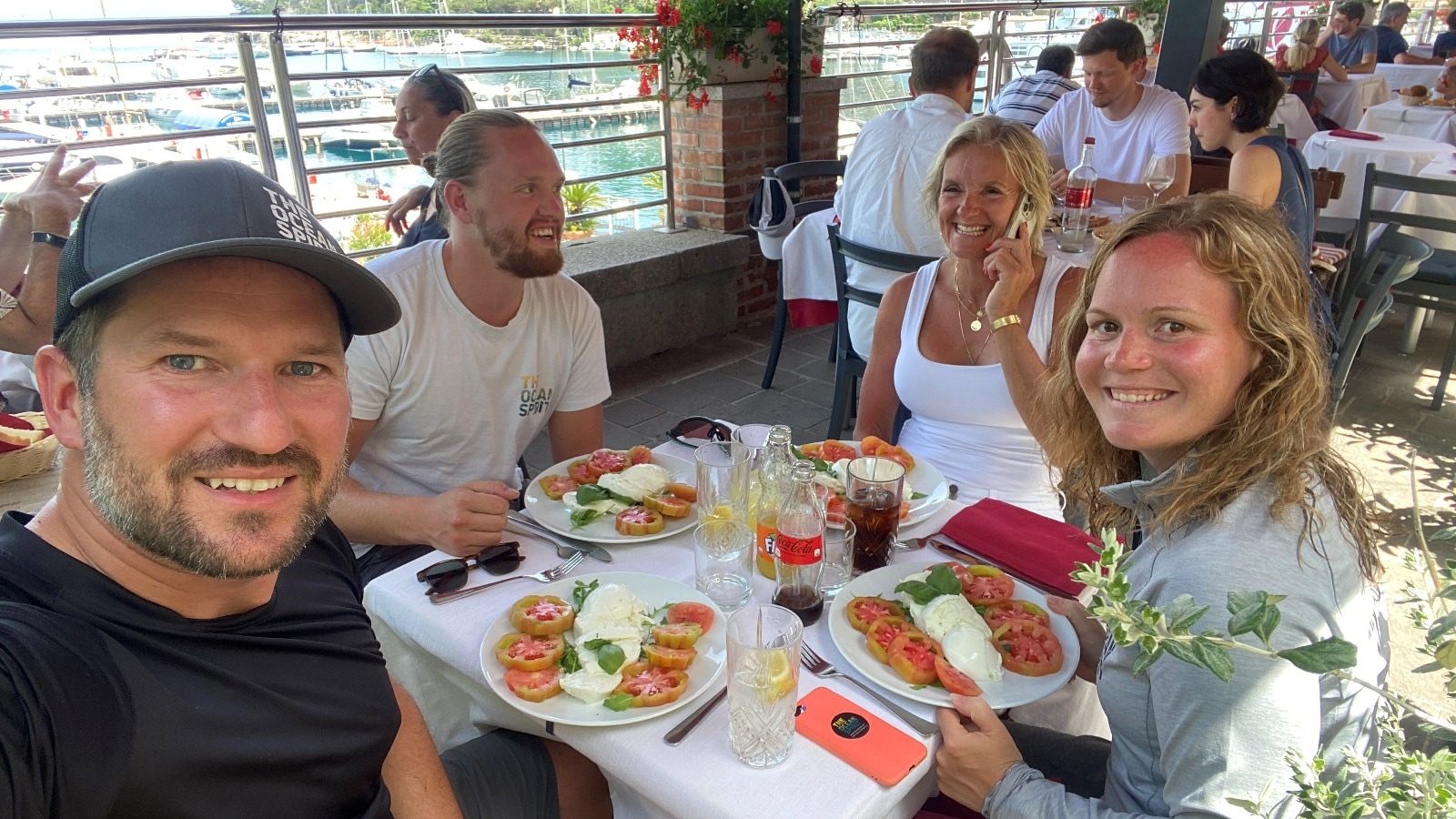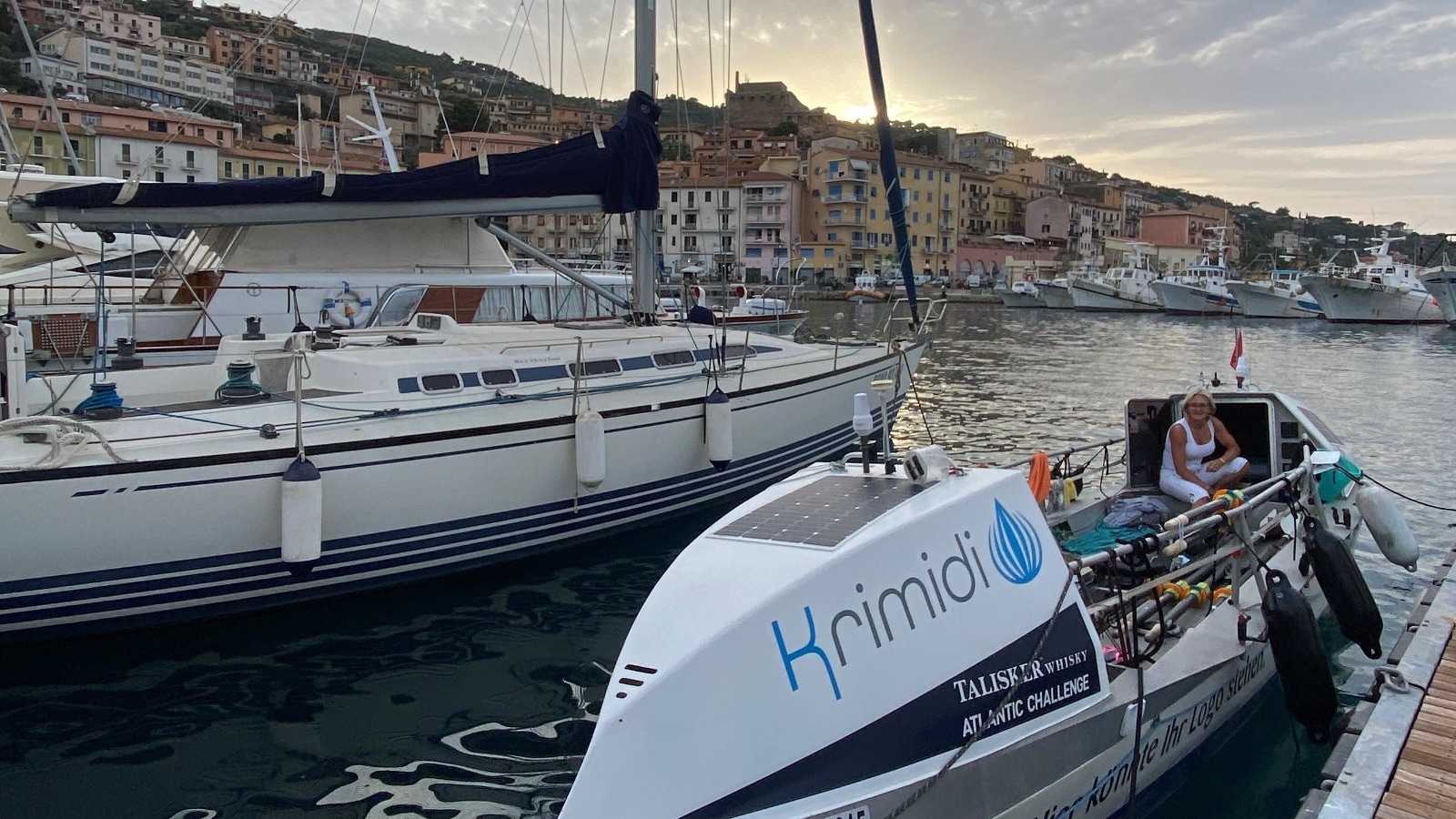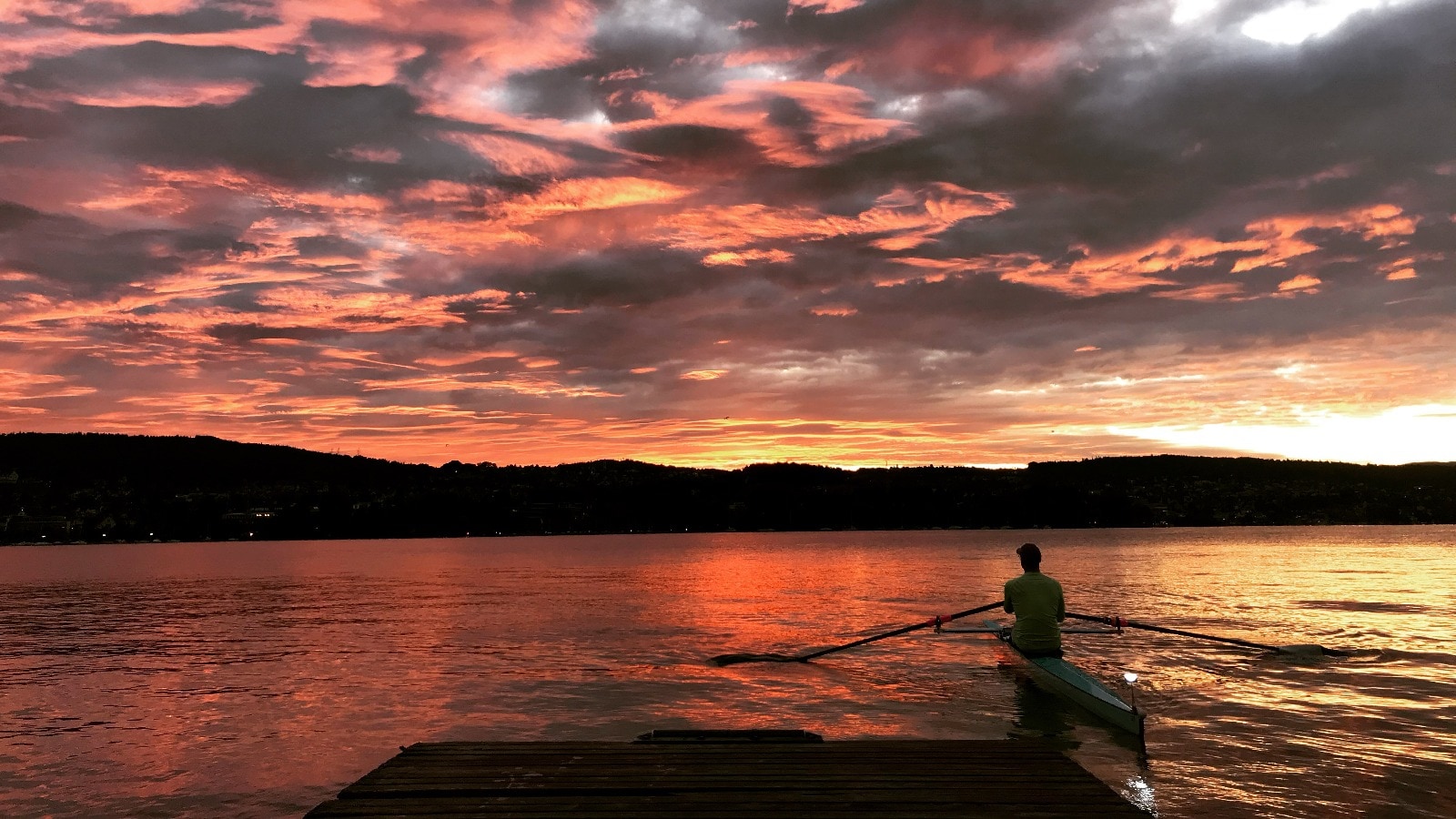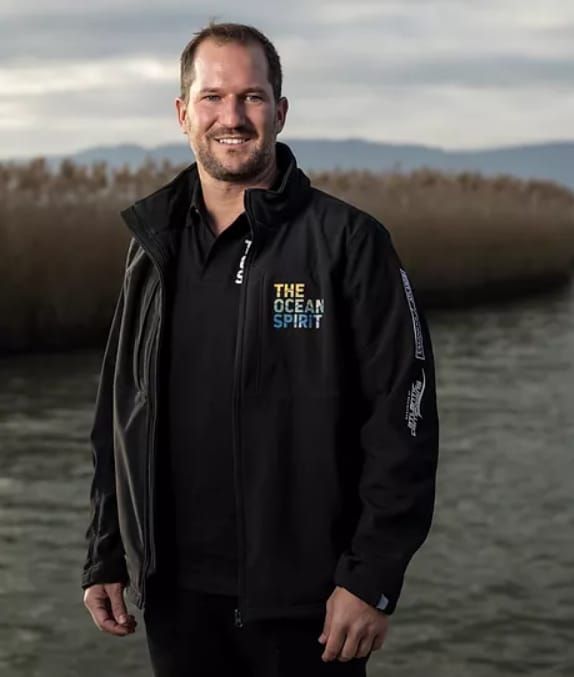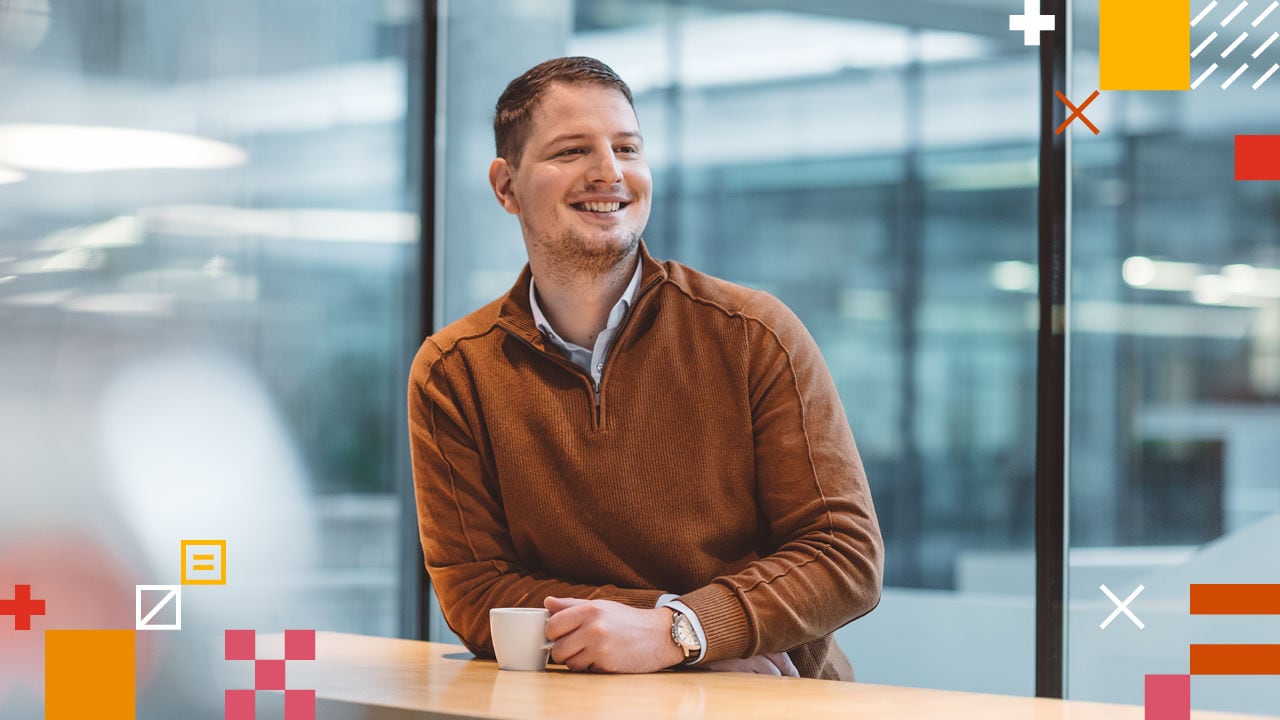{{item.title}}
{{item.text}}

{{item.text}}
Claudio Prante, a partner in Deals at PwC Switzerland, is about to embark on the world’s toughest row: the Talisker Whisky Atlantic Challenge. As part of a team of four oarspeople (two women, two men), on 12 December he’ll be setting off from La Gomera in the Canary Islands to row across the mighty Atlantic Ocean. Any profit they make from the challenge will go to Fondation Les Perce-Neige, an institution that supports people with disabilities. With four weeks to go, we interviewed Claudio about motivation, resilience and the value of a good power nap.
“It’s not about being special. It’s about deciding what will make you a more rounded person, at work and in your private life, and having the courage to go for it.”
Marc Schmidli: Is this challenge something you’ve wanted to do since you were a kid?
Claudio Prante: No. I didn’t know precisely what I wanted to do in the future. What I did know was that I liked nature, I liked adventure, and I liked challenges. And thanks to some of the mentors that I’ve had, I’ve always aspired to be a well-rounded person. Every year I do a kind of self-check, usually involving me, a glass of good wine and a blank piece of paper, where I define what a well-rounded person is. It’s almost like a personal strategy for the next few years.
So how did a glass of wine and a blank page lead to the idea of rowing across the Atlantic?
I was always in love with sports and used to do things like gymnastics and handball competitively. I’ve also done twenty-plus marathons. But although it’s great to run a marathon, it’s no longer a challenge for me. I started looking for another sports-related challenge to also balance out the work side of things.
Do you think it’s basically the same drive in business as in your private life and sports?
It’s all interlinked, because ultimately for both things you need endurance and an aspiration. You also need a plan for how to achieve your goals. One helps the other: I wouldn’t be able to perform well at work without doing sports. It helps me come down, relax. That’s where I meditate. That’s what brings a nice balance to life.
“It’s going back to basics: you eat, sleep and row. That’s it.”
How do you mean, meditate?
When we train, usually early in the morning on Lake Zurich, we have a team rule that on the way out in the boats, we don’t talk, we don’t comment on our rowing style, and we don’t do drills. No one speaks and you have half an hour of peace.
What do you think about? Or do you just let everything empty out?
It’s not that I have a plan of what to think about or meditation drills, but as we row out – ideally on a flat lake – and look at Zurich waking up, I would say I subconsciously structure my thoughts.
I guess you’ll have a lot of opportunity to do that on your trip across the Atlantic.
You’d be surprised! I’ve spoken to many people who’ve done the race in the ten years since its inception and they say you don’t have so much time because it’s so structured and so many things are happening. It’s simple. It’s going back to basics: you eat, sleep and row. That’s it. But apparently it’s never boring. But I would agree: now and then there will be enough time to think about things.
Marc Schmidli
Partner, Deals and Valuations Leader, PwC Switzerland
Tel.: +41 58 792 15 64
Will you be rowing in rotation?
Every two hours. Ideally we’re trying to do it in under 40 days. At 12 shifts per day, that’s a total of 480 hours of rowing. The fact that I’ve calculated all that, just to get a feeling of what it’s like, shows my analytical side!
A practical question: how will you get enough sleep?
Define “enough”.
Well, I mean, literally not to go crazy through lack of sleep, and also in the sense that sleep is as necessary as food and water to function physically.
When young parents give birth, how well do you think they sleep during the first few months? How many times do they wake up at night, especially if the child isn’t sleeping through? You know, they function, because they have to. In this case, I have to function as well, because otherwise I’m risking a little bit more than just being tired or sloppy. That’s one example. The second is this: consider that Cristiano Ronaldo doesn’t sleep the whole night through. He has power naps to boost performance.
Long story short: for sure the body would like to have eight hours of sleep. And by the way, I’m really careful about my sleep and am now monitoring it pretty closely with an Oura Ring, a technology that measures heart rate patterns and sleep quality. If I see, for instance, that I’ve had a terrible night’s sleep and have to train, sometimes I even put in a super power nap for 10 minutes and see what the impact is on my heart rate.
I think there will be sleep deprivation during the race, and you have to deal with that. But for that reason, important tasks such as navigation and calculations are outsourced to other people. We just connect with them via satellite phone and they tell us.
“I would even say the technical and the mental preparation outweighs the physical one.”
Is that your own team or the organiser’s?
Our team. We have a team of good people behind us that support us. This ranges from a medical and weather support, with videos and photographs, to coordination, social media, and so on.
You’re using a lot of technology and are obviously preparing incredibly thoroughly, but how much thought have you given to the worst-case scenario, like you get caught in the perfect storm or maybe somebody gets sick?
The organisers force us to think about this. It’s a thought that makes you mature quite a bit. For example, we had to write a will and sign various other documents, including one saying whether or not you should be informed about the death of a close relative. You think about these questions a lot, and they do confront you.
Everyone thinks the focus of the preparation is only physical. But it’s not only physical, it’s also about the mental component. I would even say the technical and the mental preparation outweighs the physical one.
That makes sense. I guess the physical thing is a given; it’s the other factors that are really going to make the difference.
Yes.
The „Talisker Whisky Atlantic Challenge“ (TWAC) is an ocean rowing event that will take the team 5’000 km across the Atlantic Ocean from San Sebastien, La Gomera, Canary Islands to Nelson’s Dockyard, English Harbour, Antigua & Barbuda.
The TWAC is known as the "World’s Toughest Row". The "Atlantic Campaigns SL" have been organising the annual race since 2012 and pariticipants can sign up as teams of – five, four, three, pairs or solo.
Tell us something about your team. Are you all different, complementary characters, and is that important? Or is it just people who can row?
No. I’m the one that can row the best, and to be honest [laughs], I’m not even a good rower! You should realise that I came to the team late. I did want to do the challenge, but maybe not until a year later. And then about a year ago a position in the team became vacant. So they chose me and another guy – he’s Dutch, the world record holder, incredibly talented – to give a kind of pitch. I said, “well, I’m certainly not a world record holder.” And they said, “Well, it’s going to be fun with you.”
I love the team. There’s quite a bit of humour, and fun is important for us. We were actually in a storm once, and we kind of synched. It helped a lot that everyone knew what they were doing. It was almost like, “Shut up and do the work!” And then afterwards we had a good laugh about the situation.
So there’s lots of trust. But I wouldn’t say that we’re at all similar. It’s all about attitude. When I met and spoke to Tatiana, the captain, she was incredibly inspiring. Yes, if you wanted to be pessimistic about it, you could find a million reasons not to do the challenge. I could tell you myself: I’ve made my own list. But, you know…
“I’m doing this to show what’s possible in a mixed team.”
You’ve talked about your own personal reasons for taking on the challenge. Is there other motivation driving you?
Yes, we’ve mostly spoken about myself and the team. But there’s another reason why I dared to ask for permission to do it while being employed by PwC full time. Going back to being a well-rounded person, I’d like to give the younger people that work for PwC – and maybe not only the younger people – the message that they should be making use of the flexibility that’s on offer. If you don’t ask, you don’t get. We promote flexibility. It doesn’t always have to mean a sabbatical.
The second reason is resilience. I admire the can-do attitude. I’m not an early morning person, believe me. I love to sleep in. But I get up at 5am if there’s a good reason to do it. I’m out on the lake all year round and jump in with the minimum temperature of three degrees. People think that’ll make you sick, it’s actually the opposite: it’s healthy because it makes you more resilient. I don’t get colds.
Thirdly, I’m doing this to show what’s possible in a mixed team. In the rowing club and in the race team we’re mostly guys, but I’m doing it in a mixed team to showcase that diversity in a team is good. Believe me, there’s lots of trouble we don’t have in the team because of this diversity.
Lastly, supporting a charity makes this adventure even more worthwhile.
How does diversity express itself in the team?
In terms of male/female: there’s two guys and two girls. If you add it up, the team has six children: the two mothers have four and two. We have diversity in terms of age differences. We also have different backgrounds and nationalities, although I guess a team of German and Swiss isn’t really that diverse [smile].
Oh, I don’t know about that!
I think the diversity is something I simply feel. I just feel that there’s a different atmosphere in the mixed team. We have different needs and we try to respect each other. But the bottom line is that we’re stronger because of diversity. I’m convinced of that.
Why would you say that is?
It’s difficult to describe. I would say there’s a certain calm in the mixed team. Trust me, they’re bloody strong. Sometimes there’s this thing about guys and girls and who’s competitive, who’s not. That’s absolute bullshit. I would say that the women who are in this team are even more competitive than certain men I have rowed with during my trainings.
It’s a cliché, but does the fact that the women in your team are mothers mean they have a higher pain tolerance or a greater ability to push through?
Yes. You do indeed need to have a relatively high pain tolerance. It’s part of the game.
You started talking about why you would encourage others to think about doing something like you’re doing.
Yes. Like I said, it’s about being a well-rounded person. It’s not only about being successful. How do you define success? Work doesn’t mean that you have to let go of your private life, whether that means sports, friendships or family. I think that if you work in our industry, very often there’s the risk of neglecting these things. Doing something fulfilling in your private life – it doesn’t have to be what I’m doing – is a way to show that you can be successful at two things, at least two things, without any harm to either.
I think it’s a matter of speaking up and saying “this is important to me.” To me, sports are important. For the last few years I’ve been focusing very much on work. Now I’d like to have a balance, but without impacting my performance at work.
Any last words of encouragement?
To paraphrase Columbus: “You could have done it, but I did it!” It’s not about being special. It’s about deciding what will make you a more rounded person, at work and in your private life, and having the courage to go for it.
Thank you, Claudio, and all the best. Be safe and be inspired.
We’ll try.
Claudio is a realistic optimist who genetically loves challenges. He has been passionate about sports and pasta since his early age; from competitive gymnastics and handball, he moved into endurance sports (i.e running and triathlon). He is a sub-3-hour, 24-time marathon finisher who fell in love with rowing when he moved to Zurich.
Thanks to his many years living abroad in Rome, Texas, Taiwan, Singapore, London, Germany and Paris, he values openmindedness and cultural curiosity.
Although sports is a big part of Claudio’s life, most of the hours in his day are dedicated to another passion of his; strategy, M&A and the inspiring team that helps him deliver great projects.
#social#
You're an analyst. An economist. An accountant. An innovator. A storyteller.
At PwC, you'll join an unexpected mix of people coming together to build trust in society and solve important problems.
